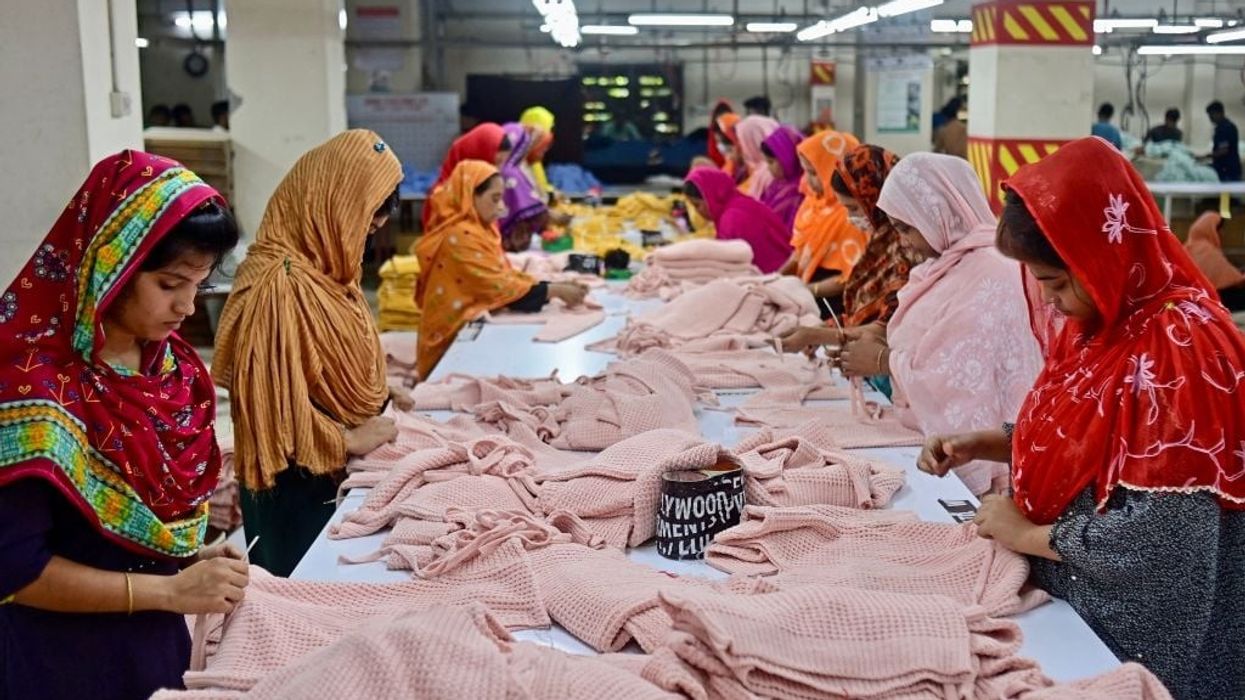BANGLADESH's garment industry, a vital economic pillar, is facing a severe crisis due to a volatile mix of political unrest, including violent protests, and catastrophic flooding, threatening to unravel years of rapid growth and global prominence.
The textile and garment industry, which accounts for over 80 per cent of Bangladesh's total export earnings and contributes approximately 11 per cent to the nation's GDP, has been hit hard.
This industry contributes significantly to export earnings and employs millions.
Following the unprecedented anti-government protests, which reached a crescendo on August 5, Sheikh Hasina resigned as prime minister and fled the country. She landed in India on August 5 and is currently staying there.
The two-month-long anti-quota protests have led to widespread demonstrations, curfews, and violence. This unrest has not only disrupted factory operations but has also caused significant economic losses.
Factories were forced to close, and with the peak season for Christmas shipments and the booking of next season's orders upon us, the timing of the unrest has exacerbated the crisis.
The Bangladesh Garment Manufacturers and Exporters Association (BGMEA) recently has reported substantial financial losses, estimating a shortfall of $540 million due to the shutdowns and communication breakdowns.
Khandoker Rafiqul Islam, the newly elected president of the BGMEA, mentioned that the goal of reaching nearly $45 billion in exports this year may not be achieved. He attributed this to disruptions in both export activities and production.
Echoing similar sentiments, former cabinet minister and president of BGMEA, Gholam Sarwar Milon, said the garment industry has been badly hit by both the political unrest and the floods, as both production and the supply chain of raw materials have been severely affected.
The crisis in the garment industry is unprecedented. Production is nearly 15-20 per cent less than the corresponding period last year. Several orders have dried up as investors and order suppliers are wary about investing. Several small factories have either closed down or are working on sub-contracts for big factories, he said.
According to BGMEA sources, out of 3,000 major and small garment factories in Bangladesh, nearly 800-900 have closed since last year.
The big factories have survived, but the small and medium factories have borne the brunt. If the situation persists, it will worsen further, he said.
Milon suggested that the garment industry needs to diversify into making jute bags and other high-end clothing and also look for new markets.
The Bangladesh Textile Mills Association has projected losses of around $58m. The impact on the industry is compounded by the recent flooding, which has further disrupted logistics and exacerbated the economic fallout.
Bangladesh's main port, Chattogram, through which more than 90 per cent of the country's international trade transits, has become a focal point of the chaos. The port's operations were paralysed during the political unrest, leading to significant delays in shipments.
Factories have struggled to maintain production schedules, and backlogs at ports and airports have stretched to a month in some cases.
To mitigate the damage, factories have turned to air freight and extended working hours, but these measures have not fully alleviated the delays.
The president of the Bangladesh Knitwear Manufacturers and Exporters Association (BKMEA), Mohammad Hatem, said orders are down by 15-20 per cent.
The garment industry's workforce, which employs over 4 million people directly and nearly 15 million indirectly, with a significant proportion of women, faces mounting uncertainty.
(PTI)





